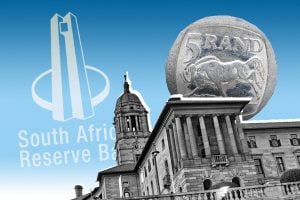South Africans are shooting themselves in the foot

South Africans may be battling a challenging economic environment, but many respond in a way that makes things much worse for themselves.
South African banking clients have been distressed amidst sustained interest rate hikes since November 2021.
However, consumers often wait too long to find a way out of their financial predicament and avoid approaching their bank.
“Because consumers perceive banks as being driven solely by profit and just ‘after our money’, it is a common psychological trait for clients to shy away from approaching their bank – especially when they are facing financial difficulties or have missed a payment – because of a natural tendency to avoid a potentially distressing situation,” said Nozizwe Tshabuse, Nedbank’s Managing Executive for Client Debt Management and Recoveries.
Tshabuse said that several trends have been observed in how clients approach their debt and how this impacts their financial health in the future.
For instance, the “committed player” resists seeing themselves as defaulters or non-payers. This means that they remain determined to pay despite their unforeseen inability to meet repayment obligations.
This is then worsened by the “ostrich effect“, where clients bury their heads in the sand. These clients often ignore information or communication such as SMSs, calls and even bank statements.
This leads to a disconnect between changes to monthly instalments as interest rates increase, resulting in accumulative arrears. This also leads to consumers not knowing what relief options they have.
There is also procrastination, overconfidence and optimism, where clients delay addressing their financial troubles in the hope that a financial windfall, such as bonuses, will rescue them.
These consumers ignore the potential damage that delay has on their credit history and record.
Turning to debt
A great irony over the fact that South Africans cannot service their debt is that more are turning to debt to contain the knocks on their disposable income.
This is according to the NedFinHealth Monitor, which quantified South Africa’s financial health score to 53 out of 100.
When debt reaches uncontrollable levels, this leads to financial shame, deterring customers from seeking financial help.
However, financial institutions do have several ways to aid customers, with Nedbank assisting 9,000 South Africans in retaining their homes and helping over 80,000 people avoid losing their cars.
“Ultimately, the bank is not just a bank; it is a partner in its clients’ financial journey,” Tshabuse said.
Read: This is how much South Africans spend on movies, video games, streaming services and more



















